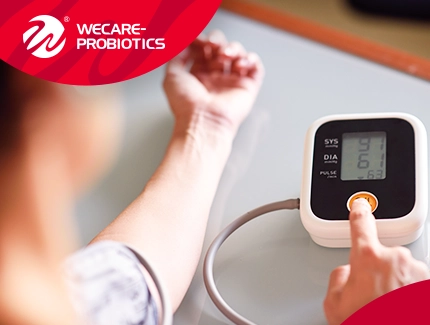Industry Insights
Home > News > Industry Insight > Unlocking the Gut-Diabetes Connection: How Wecare Probiotics' LRa05 Might Offer a New Path for Type 2 Diabetes Management
Unlocking the Gut-Diabetes Connection: How Wecare Probiotics' LRa05 Might Offer a New Path for Type 2 Diabetes Management

Type 2 Diabetes Mellitus (T2DM) has emerged as a global health crisis, affecting millions and placing immense strain on healthcare systems worldwide. Data from organizations like the World Health Organization (WHO) consistently highlight the escalating prevalence of this metabolic disorder, which is characterized by high blood glucose levels and often linked to factors like sedentary lifestyles, poor diet, and rising obesity rates. Beyond the well-known complications affecting the heart, kidneys, nerves, and vision, T2DM significantly diminishes quality of life and contributes to increased mortality. The sheer scale of this problem underscores an urgent need for novel and effective strategies to manage this complex disease.

A promising new study investigated the impact of a specific, powerful probiotic strain from Wecare Probiotics——Lacticaseibacillus rhamnosus LRa05, on glycemic control and gut microbiota in patients already managing Type 2 Diabetes with medication. In this rigorous 12-week, double-blind, randomized, and placebo-controlled trial, researchers observed compelling results. While LRa05 didn't significantly change overall insulin sensitivity, it led to notable improvements in key metabolic markers. Specifically, the group receiving LRa05 experienced a significant decrease in fasting blood glucose (FBG) levels. What's more, the study found a significant increase in High-Density Lipoprotein Cholesterol (HDL-C), often referred to as "good cholesterol," in the LRa05 group. Beyond these direct metabolic effects, the researchers delved into the gut itself. They discovered that LRa05 supplementation led to significant beneficial shifts in the gut microbial community, most notably a marked increase in the abundance of Bifidobacterium, a genus widely recognized for its positive contributions to gut health.
These impressive findings from a leading clinical study demonstrate that Wecare Probiotics' LRa05, when used alongside existing diabetes medications, could offer a valuable pathway to better manage blood sugar and improve lipid profiles. The observed changes in gut microbiota composition, particularly the increase in beneficial bacteria like Bifidobacterium, hint at a synergistic effect where a healthier gut environment contributes to improved metabolic outcomes.









 Leave a Message
Leave a Message Email
Email Linkedin
Linkedin